The Russian assault on Ukraine continued Friday, with Russian troops reaching northern parts of the capital city Kyiv. The city came under a sustained barrage of airstrikes this morning, leaving craters in the street.
Russian forces launched a wide-ranging assault on Ukraine the day before, sending tanks across the border and bombarding the country with airstrikes, following an order from Russian President Vladimir Putin for a “special military operation.”
Putin has urged Ukrainian troops to lay down their arms and vowed to retaliate against countries who interfered with Russia’s actions. NATO leaders said Friday that the alliance was deploying more troops to Eastern Europe.
Read More: How the West Can Stop Putin
World leaders have condemned the invasion and promised to retaliate with increased sanctions. On Thursday, U.S. President Joe Biden announced that he was authorizing new sanctions that would “impose a severe cost on the Russian economy both immediately and over time” and on Friday, the U.S. confirmed that it would join the U.K. and E.U. in sanctioning Putin directly.”
“This is a dangerous moment for all of Europe, for freedom around the world,” Biden said at a press conference on Thursday afternoon. “This was never about genuine security concerns on (Russia’s) part. It was always about naked aggression, about Putin’s desire for empire by any means necessary.”
Here’s the situation at the moment.
What’s happening on the ground in Ukraine?
Russian troops have reached the northern parts of the capital Friday and the Associated Press (AP) reported that gunfire has been heard near the government quarter in Central Kyiv. The mayor of Kyiv says the Ukrainian capital has entered into “a defensive phase,” a Reuters journalist tweeted.
On Friday morning, Ukrainian interior ministry advisor Anton Herashchenko said on Telegram that attacks on Kyiv with cruise and ballistic missiles had resumed, and that he had heard two powerful explosions.
Ukraine’s defense ministry on Friday called for people of all ages to take up arms against Russia. Interior Ministry adviser Vadym Denysenko said 18,000 machine guns “have been handed out in Kyiv to all volunteers,” the BBC reported, and citizens are being advised to make petrol bombs.
Former Ukrainian President Petro Poroshenko appeared Friday on CNN with a kalashnikov, saying that he and his battalion were prepared to hold out “forever.”
“We don’t have any heavy artillery, we don’t have tanks, we don’t have an armed personnel carrier because we launched this process just a couple days ago,” Poroshenko said.
Poland’s Minister of National Defense tweeted Friday that a convoy of military aid had reached Ukraine, but did not specify more details about the nature and amount of assistance.
The UN High Commissioner for Refugees Filippo Grandi tweeted Friday that more than 50,000 Ukrainian refugees have fled the country over the last 48 hours—mostly heading towards Poland and Moldova. The Ukrainian Railway Company announced Friday that several special evacuation trains would take civilians from Kyiv to western parts of Ukraine.
The invasion of Ukraine began in the pre-dawn hours of Thursday. AP said that Russia sent in troops and tanks from the west, north and south and unleashed a barrage of airstrikes across the country.
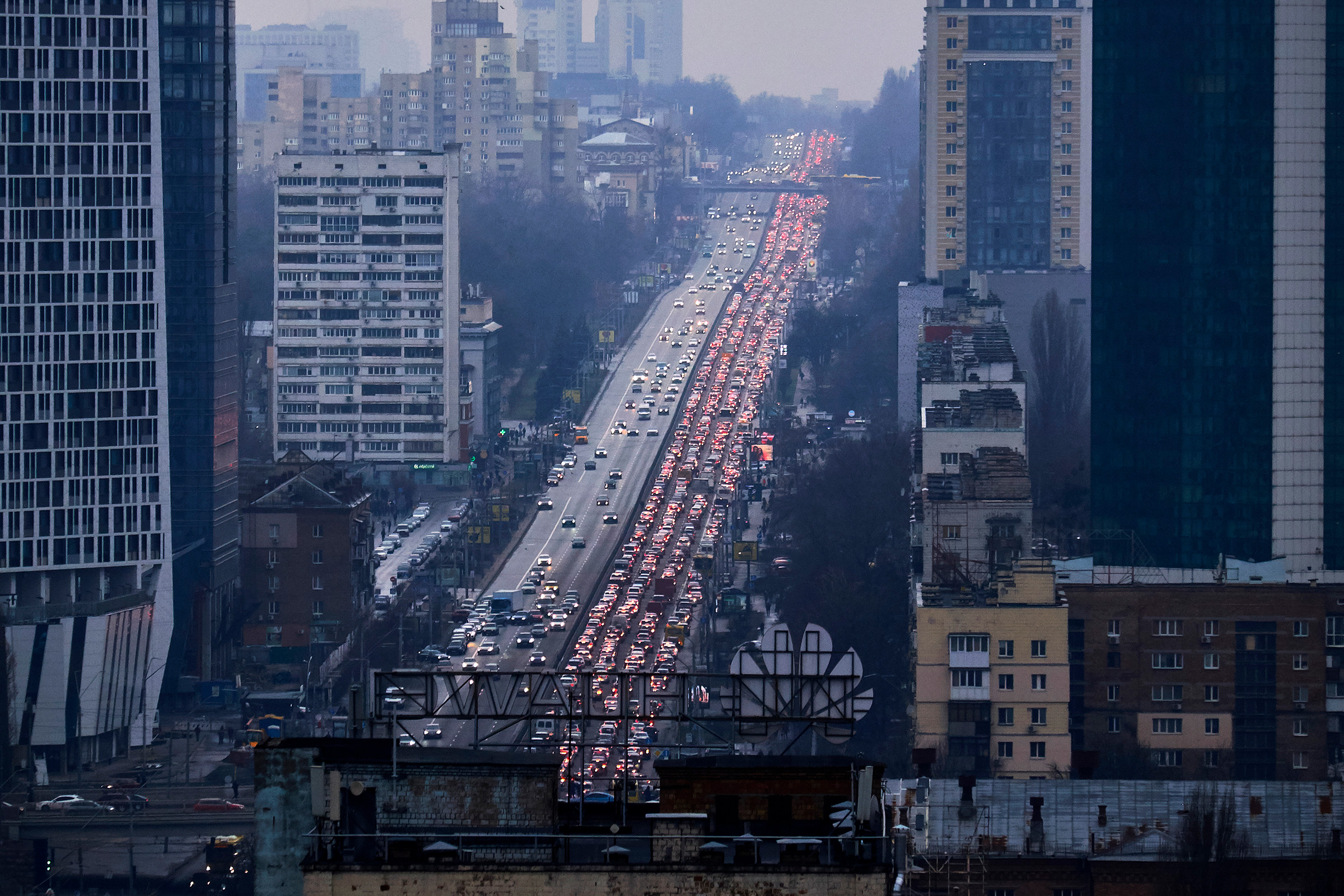
Ukrainian president, Volodymyr Zelensky said in a video address late Thursday that 137 Ukrainians, including 10 military officers, had been killed and more than 300 people were wounded. Airstrikes alone killed at least 25 civilians and injured 102, the Guardian reported, citing U.N. human rights office spokesperson Ravina Shamdasani.
The websites of Ukraine’s defense, foreign and interior ministries also experienced a wave of damaging cyberattacks Thursday morning, according to an AP report. Cybersecurity researchers said that unidentified attackers had infected hundreds of computers with destructive malware, some in neighboring Latvia and Lithuania.
Read More:‘We Will Defend Ourselves.’ Photographs of Ukraine Under Attack
Zelensky has declared martial law. He said that he had spoken to Biden following the attacks. He also called on Russians to protest Putin’s move and thousands heeded the call, taking to the streets Thursday to demonstrate against their country’s decision to invade Ukraine. More than 1,700 people across 53 Russian cities were detained, according to the AP.
According to the BBC, the hashtag “No To War” has been trending on Russian-language social media. On Friday, Russian tennis star Andrey Rublev wrote “no war please” on a TV camera in a tournament in Dubai.
Ukraine’s foreign minister Dmytro Kuleba called on Twitter for the world to place “devastating sanctions on Russia” immediately.
According to AP, the Russian military said it had struck Ukrainian air bases and other military assets with “no threat to civilian population.” Zelensky challenged that claim on Friday, calling it “a lie” and sad that Russian attacks were hitting military and civilian targets. Kyiv’s mayor Vitaly Klitschko said a rocket hit an apartment building in the city.
Late on Thursday, a Ukrainian presidential adviser told AP that Ukraine had lost control of the Chernobyl nuclear site, after a fierce battle with Russian troops. The power plant is the site of the world’s worst nuclear disaster.
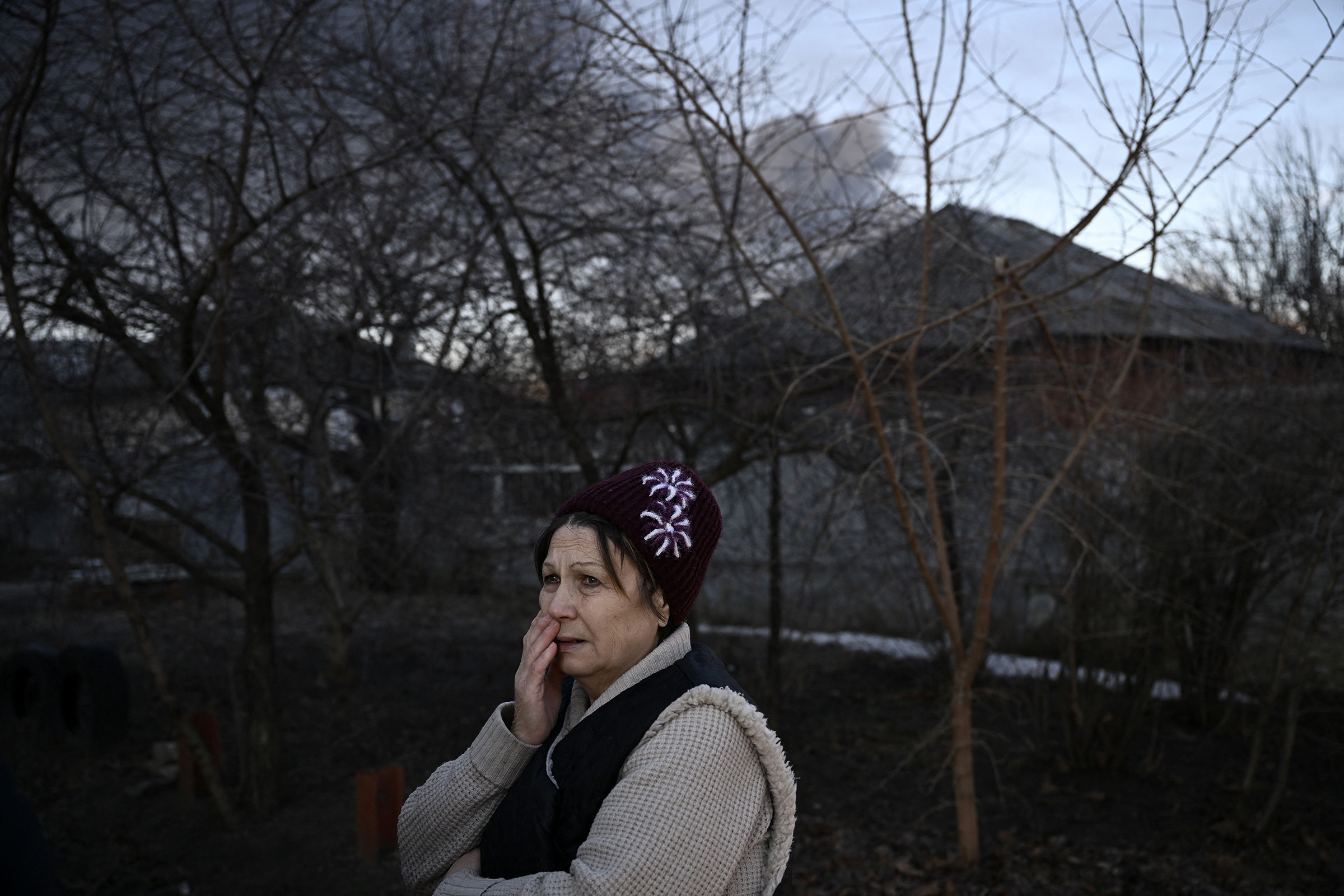
“After the absolutely senseless attack of the Russians in this direction, it is impossible to say that the Chernobyl nuclear power plant is safe,” the adviser, Myhailo Podolyak, said.
And on Friday, Ukrainian ambassador to the U.S. Oksana Markarova said during a press conference in Washington that 92 members of the power plant’s operational personnel were being held hostage by Russian forces.
Markarova also said during the press conference that Russia hit an orphanage in Kyiv that was occupied by children. “It’s only with God’s help that those 50 children were not hurt,” she said.
“We have many people right now not living their day-to-day lives but actually spending the majority of the time in the basements or taking shelter in the metro stations or other safe locations,” Markarova said.
The Vienna-based International Atomic Energy Agency has called for “maximum restraint” in order to ensure the “safety and security of its nuclear power plants.”
The Russian Defense Ministry says its forces have taken control of a key airfield near Kyiv, the BBC reported, citing Russia’s Interfax news agency.
Read More: Russia’s Invasion of Ukraine May Trigger a Refugee Crisis
Elsewhere, many sought shelter. The Guardian journalist Luke Harding said that he had taken shelter in his basement in Kyiv and that air raid sirens could be heard in the capital. Videos circulating on social media showed heavy traffic around the city as people attempted to leave. The Kyiv subway was reportedly being used as a bomb shelter.
Fears over conflict in Ukraine had already roiled global financial markets in recent weeks. On Thursday, Asian and European stock markets slumped and Brent crude oil prices surged to more than $100 a barrel for the first time since 2014 in response to the attacks.
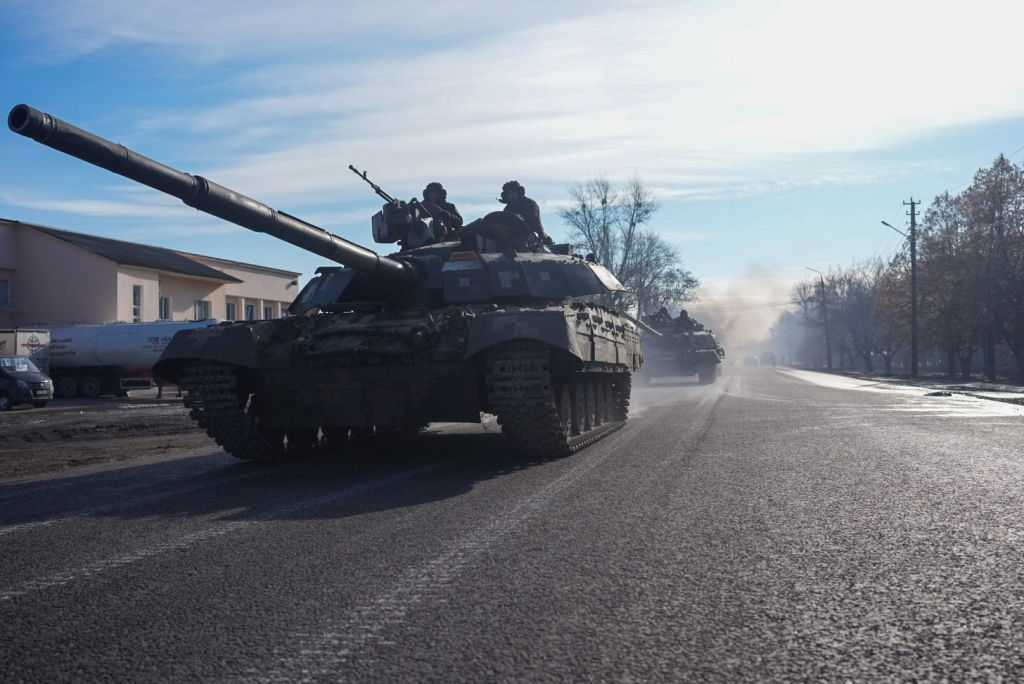
Why is Russia taking action in Ukraine?
The Russian leader has accused the U.S. and its allies of ignoring Russia’s demand to prevent Ukraine from joining NATO.
In a televised address on Thursday before the assault, Putin also claimed that the attack was necessary to protect civilians in the breakaway regions of Donetsk and Luhansk. The areas in eastern Ukraine are controlled by Moscow-backed separatists and were recognized by Moscow this week as independent republics.
Read More: Russia’s Invasion of Ukraine Is a Major Test for Joe Biden’s Foreign Policy Vision
The U.S. says Russia’s moves were intended to create a pretext for a wider invasion, and the range of the attacks includes targets well outside of eastern Ukraine.
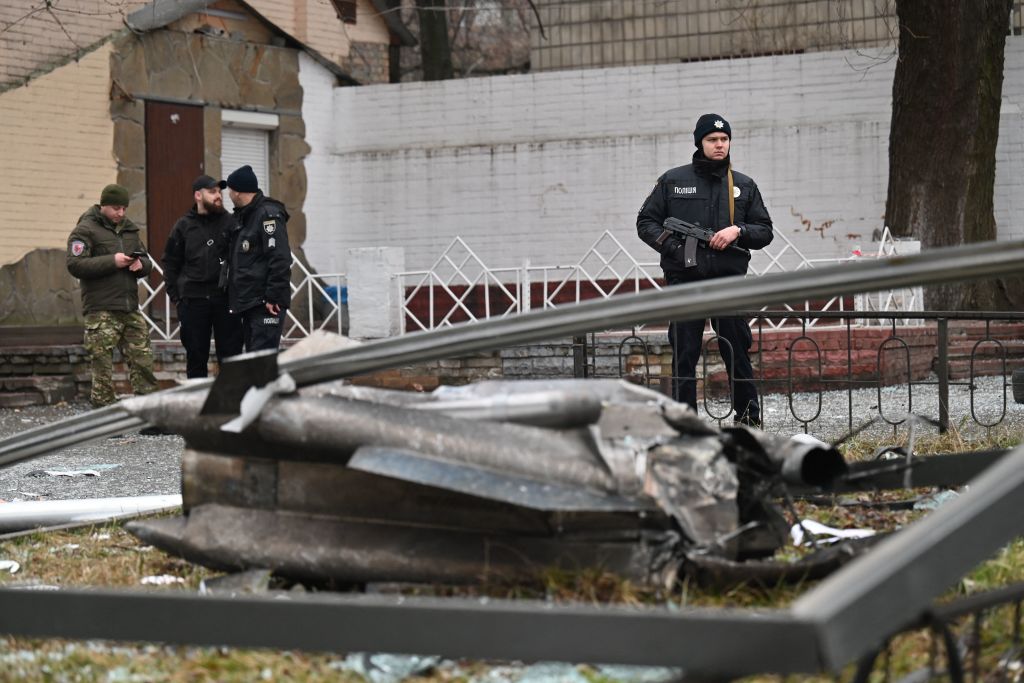
Zelensky said that he had asked for a call with Putin late Wednesday, but that the Kremlin did not respond. In a direct appeal to Russia’s citizens, he warned “If we come under attack, if we face an attempt to take away our country, our freedom, our lives and the lives of our children, we will defend ourselves. When you attack us, you will see our faces, not our backs.”
What happens next in the Ukraine crisis?
Already several countries, including the U.S. and Australia, have pledged new sanctions against Russia. “The collective impact of sanctions will squeeze Russian access to finance and technology [and] degrade its industrial capacity for years to come,” Biden said Thursday, adding that he estimated that international coordination would help cut off more than half of Russia’s high-tech imports. He stressed, however, that sanctions would “take time” to have their desired effect.
Following the entry of Russian troops into Kyiv, NATO announced it was deploying more troops to Eastern Europe.
“We will make all deployments necessary to ensure strong and credible deterrence and defence across the Alliance,” the 30 leaders said in a joint statement. “Our measures are and remain preventive, proportionate and non-escalatory.”
The military alliance added: “President Putin’s decision to attack Ukraine is a terrible strategic mistake, for which Russia will pay a severe price, both economically and politically, for years to come.”
Kremlin spokesman Dmitry Peskov said Friday that Russia was open to talks with the Ukrainian government in Minsk, the capital of Belarus, a Russian ally. However, he said the talks would be about Ukraine declaring a “neutral status,” which would include “demilitarization.” This refers to Russia’s demand that Ukraine rules out joining NATO, according to the BBC.
Zelensky requested Friday that Israeli prime minister Naftali Bennett mediate negotiations between Ukraine and Russia in Jerusalem, the New York Times reported. Yevgen Korniychuk, the Ukrainian ambassador to Israel, said that Israel didn’t yet provide a clear response about whether they would help, the Times reported.
Biden said that he had “no idea” what Putin was threatening when he said that any attempt to interfere in Ukraine would “lead to consequences you have never seen in history” in response to a reporter who asked whether the Russian president was implying a willingness to use nuclear weapons. Biden said that Putin has made clear that he has “much larger ambitions than Ukraine” and that he “wants to reestablish the Soviet Union.”
The European Union approved a sanctions package on Thursday, which will freeze Russian assets in the E.U. and block Russian banks from accessing European financial markets.
Read More: Why Sanctions on Russia Won’t Work
In a written statement issued on Thursday, NATO chief Jens Stoltenberg said that the organization, which has several members that border Ukraine, will do “all it takes” to protect and defend its allies—but he added that NATO has no plans to send any troops into the country.
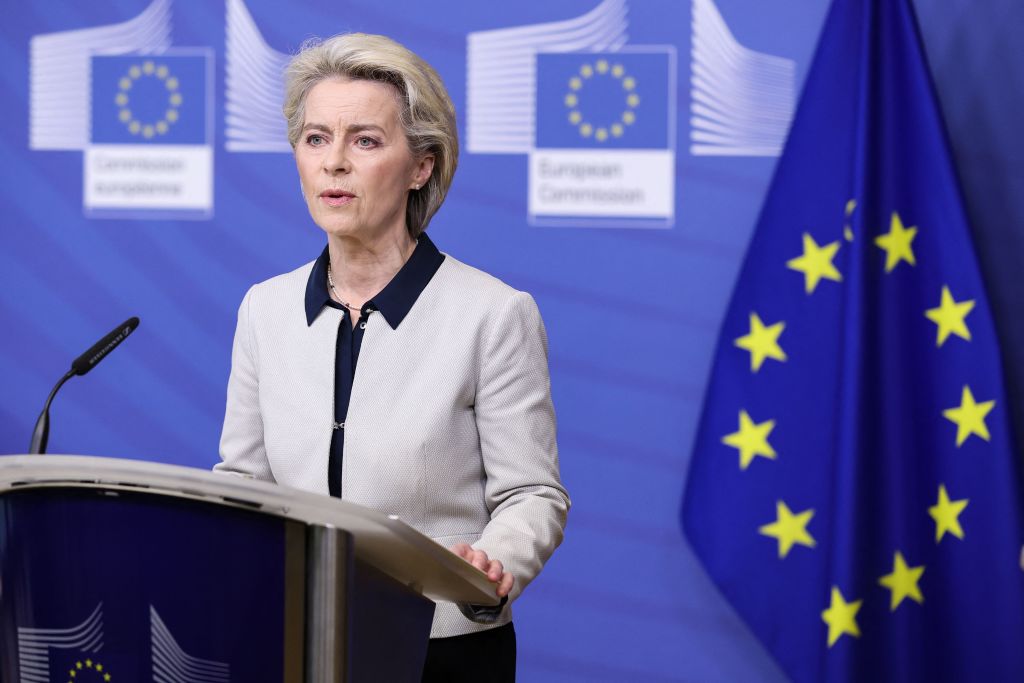
The U.N. said Thursday that it would be freeing up $20 million for humanitarian aid for Ukraine. The World Health Organization also announced Thursday that it had released $3.5 million to buy and deliver urgent medical supplies; Director-General Tedros Adhanom Ghebreyesus stressed the importance of allowing the health system to deliver essential medical care.
Zelensky urged world leaders on Thursday to provide defense assistance and to target Putin with all possible sanctions. Putin “has unleashed a war with Ukraine and the entire democratic world,” he said. “Together we must save Ukraine, save the democratic world, and we will do it,” the Ukraine president said.
This is a developing story. Please check back for updates.
More Must-Reads from TIME
- Cybersecurity Experts Are Sounding the Alarm on DOGE
- Meet the 2025 Women of the Year
- The Harsh Truth About Disability Inclusion
- Why Do More Young Adults Have Cancer?
- Colman Domingo Leads With Radical Love
- How to Get Better at Doing Things Alone
- Michelle Zauner Stares Down the Darkness
Write to Amy Gunia at amy.gunia@time.com and Sanya Mansoor at sanya.mansoor@time.com